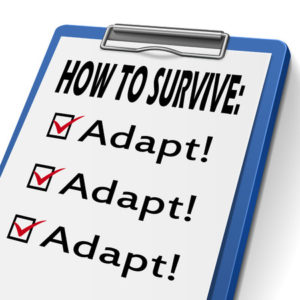Podcast: Play in new window | Download
Subscribe: RSS
#challenges #mindset #debrakasowski
Debra Kasowski is the charismatic podcast host of The Millionaire Woman Show, 3X Best Selling Author, Speaker, and Certified Executive Coach. She interviews incredible speakers, authors, CEO, Business, and Organizational Leaders and drops solo episodes with tips, strategies, and techniques for your success.
In this podcast/video, Debra Kasowski talks about how you can choose to see challenges as a threat or something you rise above. Build Awareness. Accept Where You Are. Move into Action.
Go to www.debrakasowski.com for your FREE 3-Part Video Mini-Course Making Habits Stick download when you sign up for our Success Secrets Newsletter. Book your Complimentary Discovery Session with Debra today!
Connect with Debra Kasowski on Social Media
https://www.youtube.com/user/debrakasowski
https://www.instagram.com/debrakasowski
https://www.facebook.com/debrakasowski
https://www.twitter.com/debrakasowski
SUBSCRIBE to The Millionaire Woman Show podcast
Purchase Debra’s Books on Amazon, Chapters – Indigo, Barnes & Noble
 Resistors are the ones who will see the world through a different lens than you. Instead of fueling the resistance, it can be helpful to gain an understanding of their perspective. It has been my learning through appreciative inquiry that when faced with resistance or someone providing negative feedback it is important to gain an appreciation of that person’s viewpoint. There may be nuggets of information that can be considered valuable to a project or to the goals set themselves.
Resistors are the ones who will see the world through a different lens than you. Instead of fueling the resistance, it can be helpful to gain an understanding of their perspective. It has been my learning through appreciative inquiry that when faced with resistance or someone providing negative feedback it is important to gain an appreciation of that person’s viewpoint. There may be nuggets of information that can be considered valuable to a project or to the goals set themselves. #4 Fear Sets In. There may be many fears that creep up when setting goals. There is the fear of rejection and not being accepted. You may believe that people will laugh at your goals or the ideas you present. Remember is that your goal is your goal and it needs to be important to you. People will always have their opinions. It is important not to take them personally. People often fear change due to uncertainty. The fear of success may also challenge you. Your imagination starts to take over and you think about all the things that could happen should your project or goal be achieved. Many of the things that you think of may or may not even happen and you may even feel that there’s a loss of control. The fear of failing may come up for you and this will prevent you from taking action steps required to go to war the goal. You become fearful of making mistakes and sometimes will not even try.
#4 Fear Sets In. There may be many fears that creep up when setting goals. There is the fear of rejection and not being accepted. You may believe that people will laugh at your goals or the ideas you present. Remember is that your goal is your goal and it needs to be important to you. People will always have their opinions. It is important not to take them personally. People often fear change due to uncertainty. The fear of success may also challenge you. Your imagination starts to take over and you think about all the things that could happen should your project or goal be achieved. Many of the things that you think of may or may not even happen and you may even feel that there’s a loss of control. The fear of failing may come up for you and this will prevent you from taking action steps required to go to war the goal. You become fearful of making mistakes and sometimes will not even try.

 The one constant in everyone’s life is change. We are all faced with changes and challenges on a day-to-day basis. One of the greatest challenges that leaders within organizations face is being able to keep up with their workloads while putting out fires that seem to arise. They are taken away from some of their critical work to focus intently on performance issues. Managing people and working with people can sometimes be draining especially when you’re faced with resistance and lack of awareness. Sometimes it feels like no matter how much effort you put into something that you are unable to achieve what you hope to. At times this can be disheartening for a leader to lead because they may lose sight of their focus and the meaning of the work that they were driven to do. Don’t give in and don’t give up! Adapt!
The one constant in everyone’s life is change. We are all faced with changes and challenges on a day-to-day basis. One of the greatest challenges that leaders within organizations face is being able to keep up with their workloads while putting out fires that seem to arise. They are taken away from some of their critical work to focus intently on performance issues. Managing people and working with people can sometimes be draining especially when you’re faced with resistance and lack of awareness. Sometimes it feels like no matter how much effort you put into something that you are unable to achieve what you hope to. At times this can be disheartening for a leader to lead because they may lose sight of their focus and the meaning of the work that they were driven to do. Don’t give in and don’t give up! Adapt! Leaders know that it’s important to build and nurture a network of relationships before you need them. When you are in crisis or faced with the challenge, you need to have that support immediately and if you don’t have it is more challenging to get through the tough times. When you build relationships, people are quick to reciprocate and support each other lessening the challenges.
Leaders know that it’s important to build and nurture a network of relationships before you need them. When you are in crisis or faced with the challenge, you need to have that support immediately and if you don’t have it is more challenging to get through the tough times. When you build relationships, people are quick to reciprocate and support each other lessening the challenges.

